Fish - Interview
by John Clarkson
published: 21 / 5 / 2015
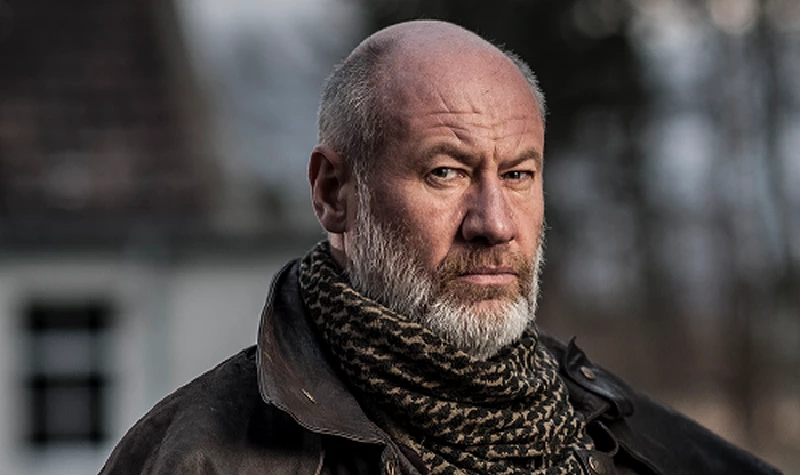
intro
Ex-Marillion front man Fish talks to John Clarkson about his recent announcement that he will retire from music to concentrate instead on a new career as a writer, and his plans for a final album and to reissue most of his solo catalogue in three CD remastered editions
“It is not the end of the creativity. It is just that the creativity is being shifted in another way,” says Fish. The veteran of fourteen studio albums – four with his former band Marillion and ten in a solo career – he is talking on the phone to Pennyblackmusic about his recent announcement that he is planning to retire from music to focus instead on a new career as a writer. Fish (whose real name is Derek Dick) and prog rock act Marillion became somewhat unlikely stars in the pop-dominated charts of the mid-1980s with the 1985 no.2 hit ‘Kayleigh’ and its no. 5 successor ‘Lavender’. Marillion, which Fish has joined as their front man in 1981 had released two previous albums, ‘Script for a Jester’s Tear’ (EMI, 1983) and ‘Fugazi’ (EMI, 1984), before they met with international success with ‘Misplaced Childhood (EMI, 1985)’, from which both those singles were drawn. An autographical concept album, it told with Fish's trademark richly evocative and poetic lyricism of his working class upbringing in the market town of Dalkeith just outside of Edinburgh, a succession of brief encounters, and his plummet into depression after the final break-up of his on-off romance with Kayleigh. Fish remained with Marillion to make one last album, another concept record, the equally-confessional ‘Clutching At Straws’ (EMI, 1987) which told of his struggles with the pressures of fame and the solace of alcohol. He, however, left the Buckinghamshire-based group over creative differences in 1988 to begin a solo career and to return to his native Scotland, where he bought a former farmhouse on the outskirts of Haddington, twenty miles east of Edinburgh, in which he built his own recording studio. Fish’s ten solo albums are ‘Vigil in a Wilderness of Mirrors’ (EMI, 1989), ‘Internal Exile’ (Polydor, 1991), covers album ‘Songs from the Mirror’ (Polydor, 1993), ‘Suits’ (Dick Bros Record Company, 1994), ‘Sunsets on Empire’ (Dick Bros Record Company, 1997), ‘Raingods with Zippos’ (Roadrunner, 1999), ‘Fellini Days’ (Chocolate Frog/Roadrunner, 2001) 'Field of Crows’ (Chocolate Frog/Snapper, 2003), ‘13th Star’ (Chocolate Frog, 2007) and ‘A Feast of Consequences’ (Chocolate Frog, 2012). He plans an extended farewell, one which will see him leave music hopefully on a crescendo. He will, in what is being billed as the 'Farewell to Childhood' tour, be undertaking festival dates this summer and club gigs in December in which he will be playing in its entirety 'Misplaced Childhood', still his best known work, for the last time. He is also working on triple CD remasters and reissues of the eight albums in his solo back catalogue up to and including 'Field of Crows'. There will be a final studio album ‘Weltschmerz’ next year. Fish, who is now 57, will also be doing further tours before bowing out from the music industry in time for his sixtieth birthday. Pennyblackmusic spoke to Fish about his long-term plans for the future, and began by talking to him about what prompted his decision to retire from music. PB: You have recently announced that you are planning to step back from stage work and making any more albums after your next record, ‘Weltschmerz'? What prompted this decision and how long ago did you make it? F: It came about just after the cancellation of my UK tour last year. I had spent months setting up the tour and promoting it and doing the rehearsals, and then four days before the tour my guitarist Robin Boult went down with chicken pox. My partner lives in Germany with her kids, and I was sitting here on my own in the studio in the house feeling incredibly frustrated. The house was too big, the garden was too big and I thought, “What am I doing here?” I had done a couple of shows with older bands, bands who were my peers, the previous summer and I was thinking, “Do I really want to be still doing this?” I do bus tours, and there was just this realisation that, while we have been lucky enough to be able to sell out mid-sized venues in recent years, my audience isn’t going to grow much more now and it ain’t going to go up to 3,000/5,000 a night. It was just having a reality check. I thought, “Well, maybe what I should be doing is examining an outer plan.” There are so many other things that I want to do. I have wanted to write an autobiography for years, and I have got ideas for screenplays. You hear about musicians that go on the road and they are like, “I am writing the next album on the road,” but I have never been able to do that. When I am on tour, my days are spent recovering from the show the previous night before doing that day’s gig. I wake up, I do any interviews, I prepare, I do the show and that’s my day. I tend to write music in between tours. I felt that it was time to break that cycle. I was really pleased with ‘A Feast of Consequences’. I was really proud at this stage in my career that I managed to pull an album like that out of my hat, which was so well–received and did so well, and I did think about leaving that as the last one, but then I thought, “No, let’s go for one more album.” PB: You have had your own health problems in recent years. In 2008 and 2009, you were away from live work for nearly a year after receiving two operations for a cyst on your throat. Was that part of the reason for your decision as well? F: Yes, but it is more than that. The ‘Childhood’ album is thirty years old now, and I don’t think anybody expects me to go out and sing it exactly as I used to in 1985. I have lost some vocal chords, and I can’t go do four shows in a row exactly as I used to do. I do three now and I take the recovery time, and that means that tours becomes more expensive. If you don’t play a show, it is another day in which you don’t have the income from that gig. It is another day in which you are paying band wages, and you are paying bus hire, and financially it puts a lot more strain on you. Generally speaking the financial strain on all of the bands out there is becoming tougher and tougher, but that hasn’t helped. It is not just the voice. I am out there sleeping on a bus, and it is my knees and back and all of the rest of it. I am not quite as flexible as I used to be. PB: You are a particularly committed live performer. You always give 100% on stage. F: Yes, and that is another problem. I tend to override the fuses when I go out on a stage. The main reason though is that when I am 59 years old or 60 years old I will have still got years left in me, and I want to use those years to concentrate on other things that I have always wanted to do. I want to write novels. I want to have a crack at writing screenplays. I want more time for myself. I want more time with my partner and my family without having to go out on the road for four months at a go. There are so many other things that I want to do and that I can’t do when I am still involved with music. PB: You have also had an on and off career as an actor. You have been in a quite a lot of TV programmes and films, but frequently because of your music career you have had to put that on hold, and it is something that you have done less and less of in recent years. Is that something that you would like to start up again? F: It is something that would open up for me without a shadow of a doubt. It makes me more available. I wish I had got more experience in the last ten or fifteen years, but my commitment to touring and writing and recording has meant that I have not been able to devote my energies into that career and it has always been of a secondary nature. In fact it has been less than secondary. It is all a big jump and I must admit that sometimes my confidence does the shakes when I think about it, but then again I was a forestry worker before I became a singer with Marillion. In 1981 I left the forestry industry and moved into the music industry, and that was a big jump, and it is now the right time to make the next one. When I did make this decision, I wasn’t panicky. If felt right. PB: So, when you do step back from music will you start with the autobiography? F: Probably. That seems the most sensible thing to do. You obviously write about the thing that you know the most about. It won’t be a standard autobiography. I have read a couple of musicians’ autobiographies and that is not what I want to do. It needs to be something that envelops a lot more than the music. Everything that has happened in the music, especially in the last twenty years or so, has been ruled and controlled by outside influences, and I think some people might find some of those influences quite shocking and what it has taken to create a lot of this stuff. There are a lot of very funny stories there as well. A couple of the screenplay ideas that I have are directly associated with the music industry, and one of the screenplays you might say is the equivalent of the autobiography but written from a fictional parenthesis. It is taking all the stories that I could never put in the autobiography because I would basically get my ass sued. It excites me. I am looking forward to it more all of the time. There is the whole question of geographically where I am going to be as well. I don’t know whether I am going to be in Germany or Scotland. My partner is perfectly willing to move across from Germany over here, and I am perfectly willing to move across there, and we don’t know where exactly at this moment in time where we are going to be. My plan at the moment is to focus on the ‘Farewell to Childhood’ tour. We are going to be playing some festival dates with it this summer, and then some theatre dates in December. There is a chance of taking it out to South America for maybe next two or three weeks next May, but I don’t know yet. We are also going to start writing the ‘Weltschmerz’ album this year, taking notes on it and putting bits and pieces together for it, and then we have put aside January, February, March and April/May of next year to finish off writing it and to record it with Calum Malcolm in the studio which will be the last album that we record there. Then we will release the album at the beginning of September right at the cusp of what will be a UK/European tour to promote that album, and then in 2017 we will do a definitive farewell tour. PB: Will your last show then be in 2017? F: I don’t know. It is either going to be the end of 2017 or is going to be April 25th 2018 on my sixtieth birthday. I like the idea of playing my last gig on that date. I think that is a good age. I have seen a couple of guys who are older than me coming off stage having been through what I have been through, playing the songs and playing them really well, but it is like, “We need a paramedic.” That is to me a nightmare scenario. I don’t play football anymore and it was a tough decision stopping playing football. It is just recognising that I have got to that stage in my life. PB: ‘Misplaced Childhood’ came out thirty years ago this June. It seemed amazing back then that it did as well as it did. There was – for want of a better word- no other prog rock act, especially a young prog rock act, which met with such success. Why do you think, given what else was in the charts at that time, that it attracted and appealed to so many people? F: It wa all synthesizers and pop at that time, and we just came up with something that was totally different. It was a very honest and very emotional album as well as an unusual album, and I think because of that it struck a chord with a lot of people at that time. PB : Is that young man who wrote those lyrics at the age of 26 or 27 still someone that you feel close to or is it someone you feel distance from now? F: No, it is still the same person. I think it is the same for most people when you look back on your teenage years or any aspect of their life. You realise it is the same person. There are a lot of things that happened back then that perhaps I wouldn’t have done now. I have definitely matured as a person, but it is still the same person. I think that on ‘Misplaced Childhood’ I started to find my own writing style. It was a definite change from 'Script for a Jester's Tear' and ‘Fugazi’. I started writing in a lot more honest, open way. I wasn’t hiding myself as I was on the first two albums. My lyrical style was defined with that album. PB: Obviously ‘Kayleigh’ was a big hit. It has been widely written about elsewhere that it was about several different women with whom you had relationships, including your ex-girlfriend Kay Lee. Who, however, was the character of Mylo in ‘Blind Curve’, who you describe as being the “first of our own” to die? F: John Mylo was the drummer in Rage. They used to do a lot of supports for us in 1984. Mylo was a bit like an older brother that I had never had. The Rage boys had been around the block many times (Laughs), and their experience rubbed off on us. I had quite an attachment to Mylo. I really liked him. He was a beautiful character and, as I wrote on the lyric, he was taken away from us all so quickly, so young. It was the first time that I had really lost somebody that was my age, who was so close to me. PB: And is the story, as you sing about it on the album, about you hearing the news of his death in a Holiday Inn in Toronto true too? F: Yeah, we were on tour and doing a load of interviews that day when the news broke. We were told about 7.00 in the morning. We were jetlagged. We got up early for breakfast. We came through and Mylo was one of the best mates of Paul Lewis, our tour manager, and the guy who was looking after us, and he told us that he had died. Mylo had just found the relationship that he had always been looking for, and I think that Rage were across in Spain, and there was a car crash. It was just so brutal and so quick. Then I had to go and do these interviews. I was sitting in this room and I was trying to get myself together, and all these journalists were coming and going and they didn’t care. All they were interested in was getting me to regurgitate words and give answers to their questions, and nobody gave a fuck what emotions I was going through. It was like, “You’re touring. We have paid for you to come over here. Do the interviews.” It was one of those moments that charged the way for the cynicism of ‘Clutching At Straws’. PB: Who was the character of 'The Wallflower'in ‘Lost Weekend’ based upon? F: It was somebody I had met in Edinburgh. I came up to Edinburgh for the weekend and I met somebody. I had Just split up from Kay. That whole relationship had been off and on, and the ending was incredibly traumatic. I was desperately looking for somebody. ‘Lavender’ is about that as well, but ‘Lost Weekend’ was just somebody that I met in a bar. She was going to come down to Aylesbury for Pete Trewavas’ wedding (Marillion bassist – Ed), but she didn’t show up and I never heard from her again. It was just one of those things of the moment. With a lot of the lyrics, you grab at events and experiences and then alter them and slant them in different ways. ‘Misplaced Childhood’ was when I really started doing that. There was a lot more prose involved in ‘Misplaced Childhood’ than there was on previous albums. PB: Last question. You are re-releasing most of your solo back catalogue in triple CD remastered versions later this year. You are starting with the four albums between'Sunsets on Empire' and 'Field of Crows' in September, and then will release your four earlier solo albums towards the end of the year. Why have you decided to put them out in that order rather than releasing them chronologically? F: It is because if you see those latter albums on eBay they are selling for about £60 brand new. ‘Vigil in a Wilderness of Mirrors’, ‘Internal Exile’ and to some degree ‘Suits’ were big sellers in those days, although things began to tail off with ‘Suits’ when I left EMI and formed Dick Brothers and then Chocolate Frog and went down the independent route. ‘Sunsets on Empire’, ‘Raingods with Zippos’, ‘Fellini Days’ and ‘Field of Crows’ have all gone out of print, so I thought, “Okay. Let’s deal with these first.” Those seemed more relevant. We will put the other four albums out towards the end of the year, hopefully in December. Hopefully we will get ‘Vigil’ back from what is now Warners by then. It would be great to have my full solo catalogue out there, for the start of 2016. I see these versions of my albums as my legacy. They are the definitive issue of these albums. PB: You’re putting a lot of live tracks on them. You put out a lot of live releases in the 1990s as what you described as ‘Official Bootlegs’. Are all these live tracks from that series? F: They are from all over the place. There are some from the ‘Official Bootlegs’ series which have long since been deleted. Some of these only sold about 2,000 units and a lot of those albums a lot of fans haven’t heard or don’t even know existed. Each album is a collection of definitive versions of the songs, or what I consider to be definitive versions of the songs (Laughs). Some of the live stuff has never been released before, and some of it has been on very limited releases. And then there are the demos. I am not just releasing any old demos. They have got to be something that shows where that track came from. I don’t demo as much as everybody thinks. Apart from ‘13th Star’, we used to just go in and create inside the studio, and anything that wasn’t up to scratch we used to discard it. I haven’t got vaults of material. All the demos that are on there are, therefore, really special. PB: You have said online that you are going to be publishing fifty page books with each one. What is going to go into them? F: They will be an overview of the period in which each album was written, a history of what was going on at the time. They are like half autobiographies in a way. My life has been defined during the last thirty-five years by making albums and touring them. By going back and looking at the marker points of these albums, I will hopefully be putting history in sequence. Much of the writing that will occur in the books will be relative to the actual music, how it was done, how it was recorded, which wouldn’t necessarily be of interest to someone reading the autobiography, as it will be more technical or about what occurred around that album and to some extent that tour as well. PB: Thank you.
Band Links:-
http://fishheads.club/https://www.facebook.com/derek.dick
http://fish-thecompany.com/
https://www.facebook.com/MarillionOfficial
Picture Gallery:-
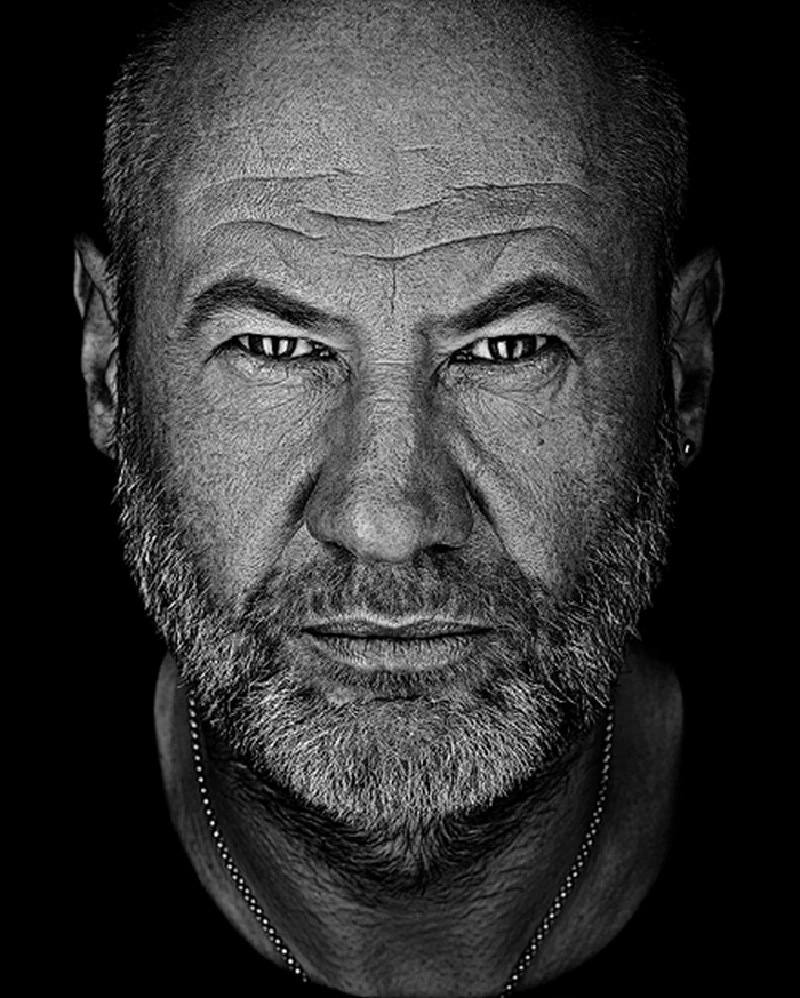
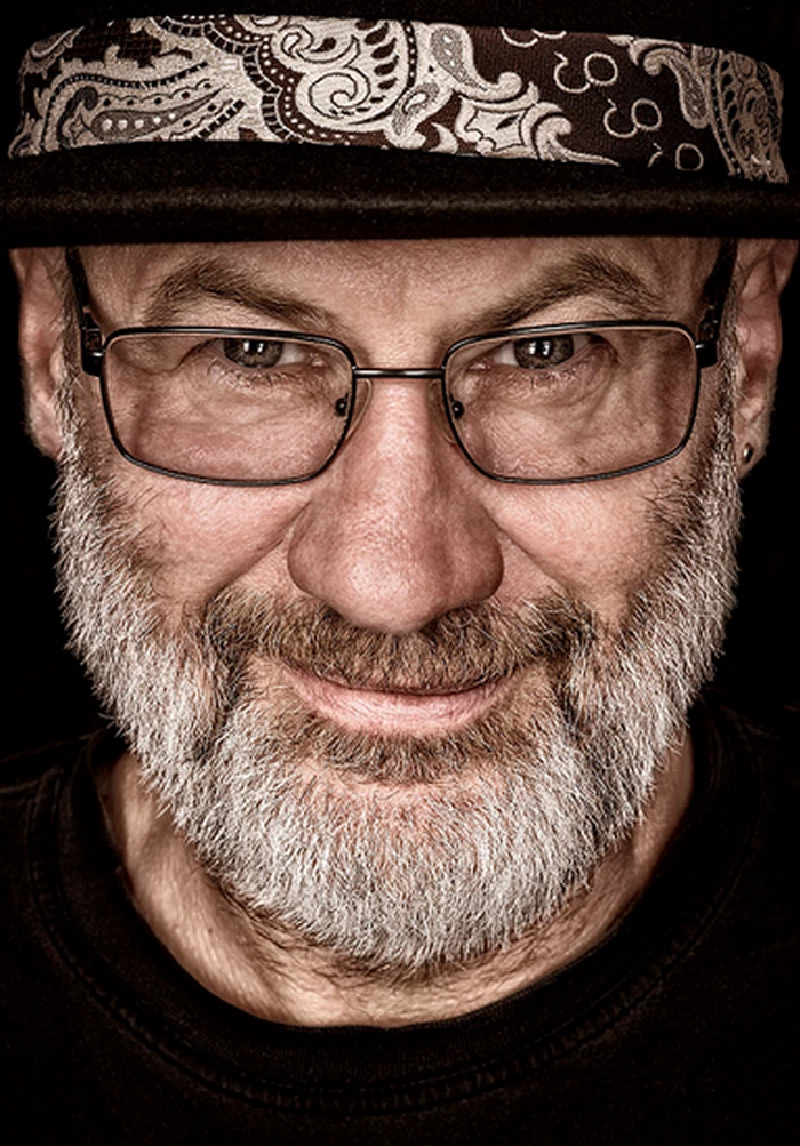
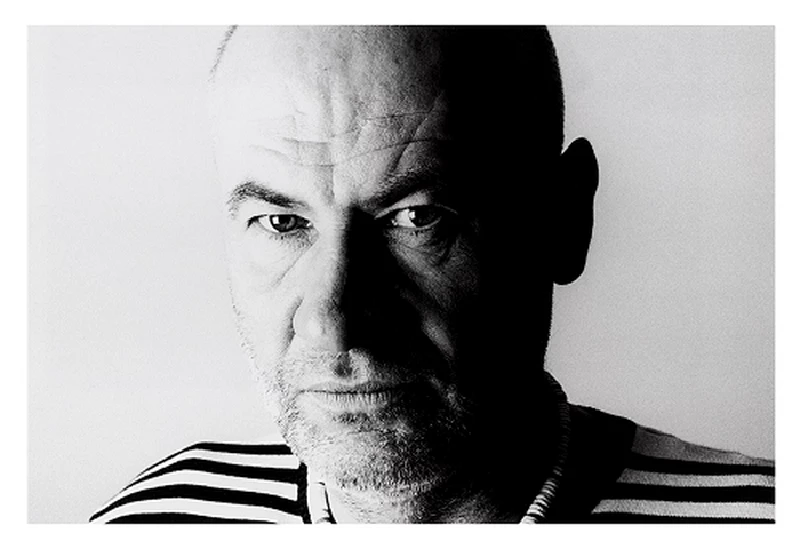
interviews |
|
Interview (2013) |
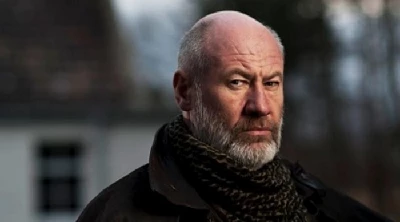
|
| Paul Waller speaks to former Marillion front man Fish about his years in his former group, forthcoming album 'Feast of Consequences' and touring again after a long absence |
| Interview (2010) |
photography |
|
Photoscapes (2018) |
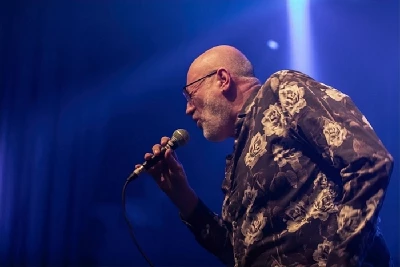
|
| Andrew Twambley photographs former Marillion front man Fish at a show at The Ritz in Manchester. |
most viewed articles
current edition
Carl Ewens - David Bowie 1964 to 1982 On Track: Every Album, Every SongArmory Show - Interview with Richard Jobson
Colin Blunstone - Thalia Hall, Chicago, 16/7/2025
Bathers - Photoscapes 1
Visor Fest - Valencia, Spain, 26/9/2025...27/9/2025
John McKay - Interview
Editorial - July 2025
Sir Tim Rice - Interview
Bathers - Photoscapes 2
Billie Eilish - O2 Arena, London, 10/7/2025
previous editions
Heavenly - P.U.N.K. Girl EPManic Street Preachers - (Gig of a Lifetime) Millennium Stadium, Cardiff, December 1999
Oasis - Oasis, Earl's Court, London, 1995
Beautiful South - Ten Songs That Made Me Love...
Trudie Myerscough-Harris - Interview
Pixies - Ten Songs That Made Me Love...
Simon Heavisides - Destiny Stopped Screaming: The Life and Times of Adrian Borland
Doris Brendel - Interview
Paul Clerehugh - Interview
Prolapse - Interview
most viewed reviews
current edition
Amy Macdonald - Is This What You've Been Waiting For?Sick Man of Europe - The Sick Man of Europe
Phew, Erika Kobayashi,, Dieter Moebius - Radium Girls
Alice Cooper - The Revenge of Alice Cooper
Davey Woodward - Mumbo in the Jumbo
Lucy Spraggan - Other Sides of the Moon
Blueboy - 2
Cynthia Erivo - I Forgive You
Lapsley - I'm a Hurricane, I'm a Woman In Love
Philip Jeays - Victoria
related articles |
|
Billy Bibby and the Wry Smiles: Interview (2016 |
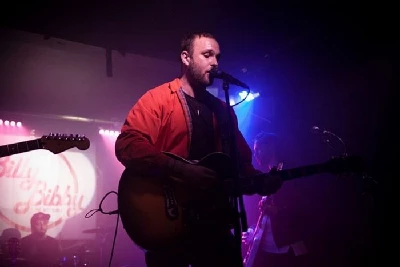
|
| Harry Sheriff chats to Billy Bibby and Matt Thomas of Billy Bibby and the Wry Smiles about touring and what direction the band wants to take |
| Filthy Tongues: Interview (2016) |
| Billy Bibby and the Wry Smiles: Interview (2016) |
Pennyblackmusic Regular Contributors
Adrian Janes
Amanda J. Window
Andrew Twambley
Anthony Dhanendran
Benjamin Howarth
Cila Warncke
Daniel Cressey
Darren Aston
Dastardly
Dave Goodwin
Denzil Watson
Dominic B. Simpson
Eoghan Lyng
Fiona Hutchings
Harry Sherriff
Helen Tipping
Jamie Rowland
John Clarkson
Julie Cruickshank
Kimberly Bright
Lisa Torem
Maarten Schiethart